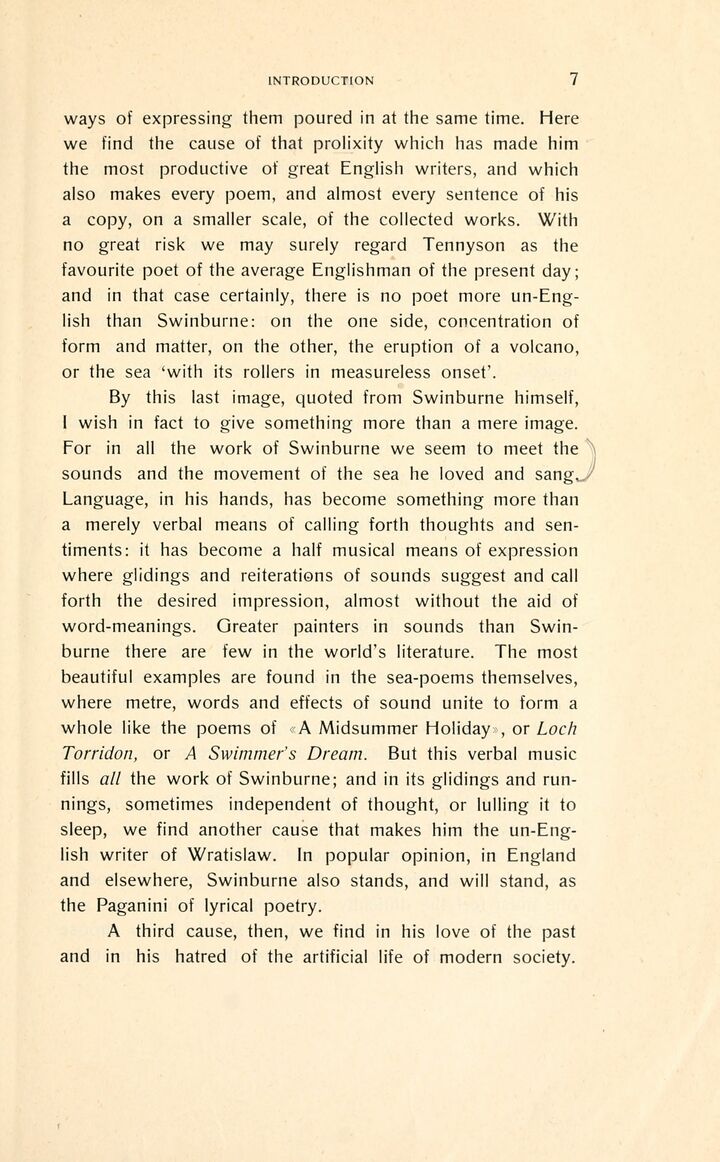
Full resolution (JPEG) - On this page / på denna sida - Sidor ...

<< prev. page << föreg. sida << >> nästa sida >> next page >>
Below is the raw OCR text
from the above scanned image.
Do you see an error? Proofread the page now!
Här nedan syns maskintolkade texten från faksimilbilden ovan.
Ser du något fel? Korrekturläs sidan nu!
This page has never been proofread. / Denna sida har aldrig korrekturlästs.
7 INTRODUCTION
ways of expressing them poured in at the same time. Here
we find the cause of that prolixity which has made him
the most productive of great English writers, and which
also makes every poem, and almost every sentence of his
a copy, on a smaller scale, of the collected works. With
no great risk we may surely regard Tennyson as the
favourite poet of the average Englishman of the present day;
and in that case certainly, there is no poet more
un-English than Swinburne: on the one side, concentration of
form and matter, on the other, the eruption of a volcano,
or the sea ’with its rollers in measureless onset’.
By this last image, quoted from Swinburne himself,
1 wish in fact to give something more than a mere image.
For in all the work of Swinburne we seem to meet the
sounds and the movement of the sea he loved and sang^
Language, in his hands, has become something more than
a merely verbal means of calling forth thoughts and
sentiments: it has become a half musical means of expression
where glidings and reiterations of sounds suggest and call
forth the desired impression, almost without the aid of
word-meanings. Greater painters in sounds than
Swinburne there are few in the world’s literature. The most
beautiful examples are found in the sea-poems themselves,
where metre, words and effects of sound unite to form a
whole like the poems of «A Midsummer holiday», or Loch
Torridon, or A Swimmer’s Dream. But this verbal music
fills all the work of Swinburne; and in its glidings and
runnings, sometimes independent of thought, or lulling it to
sleep, we find another cause that makes him the
un-English writer of Wratislaw. In popular opinion, in England
and elsewhere, Swinburne also stands, and will stand, as
the Paganini of lyrical poetry.
A third cause, then, we find in his love of the past
and in his hatred of the artificial life of modern society.
t
<< prev. page << föreg. sida << >> nästa sida >> next page >>